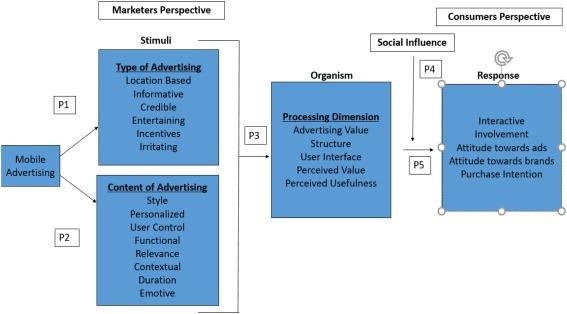Future-Proof Careers: how to Prepare Students for Tomorrow’s Top Jobs
In a rapidly evolving world shaped by technology, innovation, and artificial intelligence, today’s students face a job market unlike any before. Preparing students for future-proof careers has become essential for ensuring long-term employability, satisfaction, and adaptability. But how do we equip the next generation with the skills and knowledge to thrive in tomorrow’s top jobs? This extensive guide offers key insights, practical tips, and proven strategies for educators, parents, and students who aim to stay ahead in an unpredictable landscape.
Why Future-Proofing Careers Matters
Conventional career advice often falls short in the face of automation, globalization, and shifting employer needs. According to the World Economic Forum,65% of children entering primary school today will ultimately work in jobs that do not yet exist. Relying on outdated educational models puts students at risk of being ill-prepared for tomorrow’s opportunities—and challenges.
- Job automation is predicted to replace millions of positions, while creating new roles requiring advanced technical skills.
- Remote work and the gig economy are reshaping expectations and employment structures.
- Emerging industries like green energy, biotech, and AI are creating opportunities in previously unexplored fields.
Top Skills for Future-Proof Careers
the jobs of the future demand more than rote memorization—they require a foundation of transferrable and technical skills that can adapt to any surroundings.Here are some of the key skills that will be crucial:
1.Digital Literacy & Technical Expertise
- Coding and Programming: Positions in software development, web development, and AI require fluency in programming languages like Python, Java, or JavaScript.
- Data Analysis: The ability to analyze and interpret data is crucial for roles in business intelligence, finance, and healthcare analytics.
- Cybersecurity Awareness: Protecting digital information is vital across all industries in the digital age.
2. Critical Thinking & Problem Solving
- Employers value employees who can identify problems, think creatively, and propose effective solutions.
- Innovation and adaptability are essential in fast-paced environments.
3. Communication & Collaboration
- Remote and multi-disciplinary teams require strong interpersonal and cross-cultural communication skills.
- Emotional intelligence is increasingly recognized as a key differentiator in leadership and teamwork.
4. Creativity and Innovation
- Fields such as design, media, marketing, and product development thrive on fresh ideas and creative thinking.
5.Lifelong Learning
- The willingness and ability to continuously learn new skills and acquire new knowledge is essential for professional relevance and mobility.
Tomorrow’s Top Jobs: career Paths with Staying Power
While it’s impossible to predict every job of the future, some career paths are especially likely to remain in high demand thanks to technological, environmental, and societal changes:
- Data Scientists & Analysts – As data continues to explode, professionals who can extract actionable insights are invaluable.
- Artificial Intelligence & Machine Learning Specialists – The AI sector is expanding rapidly, requiring skilled engineers and innovators.
- Healthcare Professionals – Aging populations and advances in medical technology will keep doctors, nurses, and medical technologists in demand.
- Renewable Energy Experts – Specialists in solar, wind, and sustainability engineering will play critical roles in combating climate change.
- Cybersecurity experts – As threats evolve,so to must the skills to safeguard people and organizations.
- Educators and EdTech Developers – Education will change, but the need for teaching and learning support will only grow.
Practical Tips: How to Prepare Students for Future-Proof Careers
It’s not just about choosing the right subject or degree.Preparing for the future job market means developing a growth mindset and cultivating experiences that build applicable skills. Here’s how educators, parents, and students can start:
1. Prioritize STEM Education
- Encourage students to engage in Science, Technology, Engineering, and Mathematics through classes, clubs, or online courses.
- Introduce basic coding and robotics at an early age.
2. Encourage Project-Based & Experiential Learning
- Problem-based assignments allow students to tackle real-world challenges,fostering teamwork and critical thinking.
- Internships, volunteering, and hands-on projects bridge the gap between theory and practice.
3. Foster Soft Skills Early
- Cultivate leadership, communication, empathy, and adaptability through group work, debate clubs, and public speaking events.
4. support Continuous Learning
- Teach students how to research, analyze, and synthesize new information on their own.
- Encourage use of online learning platforms such as Coursera, Khan Academy, and LinkedIn Learning.
5. Develop Digital Portfolios
- Students should create and regularly update online portfolios showcasing skills, completed projects, and certifications.
Case Study: A High School’s Journey Toward Future-Proof Education
Riverdale High School in California revamped its curriculum in 2021 to prepare students for tomorrow’s top jobs. They introduced mandatory coding classes starting in grade 7, promoted cross-curricular STEM projects, and partnered with local tech firms for internships.
Within two years, student engagement and graduation rates rose by 15%. Alumni feedback highlights confidence in digital competencies and readiness for the job market. The collaboration between industry and education led to a more future-oriented mindset among both staff and students.
Student Outlook: Preparing for the Future First-Hand
“My school encouraged us to learn Python and set up a digital portfolio. Now, at university, I feel miles ahead in group projects and interviews. I also learned critical thinking by working on real-world problems, which helped me land my first internship.”
—Sara L., Computer Science Major
Benefits of Preparing for Future-Proof Careers
- Agility: Students become more adaptable to changing job markets and career pivots.
- Lifelong Employability: Continuous skills development increases long-term job security.
- Personal Growth: Exposure to new ideas and technologies nurtures confidence and adaptability.
- Economic Resilience: Future-ready workers bolster economic stability and growth.
Conclusion: Investing in Tomorrow’s Success
The future of work is rich with possibility and challenge. By embracing digital literacy, cultivating critical thinking, and fostering a mindset of lifelong learning, educators and parents can help students not just survive, but thrive in careers that aren’t yet fully defined. The foundation for future-proof careers is built on continuous adaptation, curiosity, and the courage to innovate. Start today—and empower the next generation to seize tomorrow’s top jobs.

